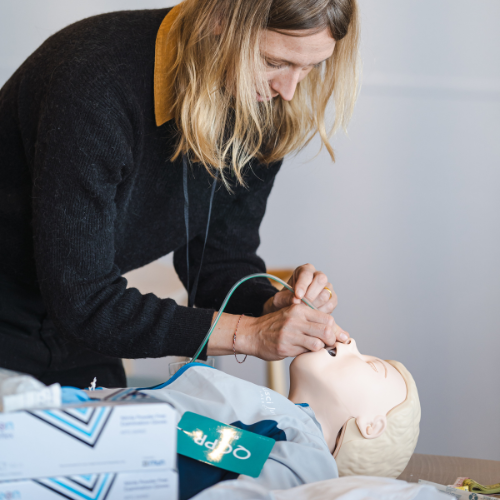About the AST
Embark on a journey in anaesthetics through the Rural Generalist Anaesthesia Training Program, a joint initiative of the Australian and New Zealand College of Anaesthetists (ANZCA), the Australian College of Rural and Remote Medicine (ACRRM) and the Royal Australian College of General Practitioners (RACGP).
The colleges provide a training program leading to the qualification of Rural Generalist Anaesthesia (RGA), equipping you with the skills to deliver safe anaesthesia and perioperative care in rural and remote settings, covering elective and emergent surgeries, including obstetrics and paediatrics.
As an RGA, you'll have the expertise to resuscitate and stabilise patients for transfer when needed, while recognising the boundaries of your expertise and engaging in continuous professional development to meet community needs.

Curriculum highlights / credentials
The Rural Generalist Anesthesia training program is modelled on the ANZCA curriculum and builds from the relevant core curricula of the ACRRM and RACGP Fellowship programs. It consists of three core sections:
1. Rural Generalist anaesthesia roles in practice
Define trainee behaviours as they pertain to anaesthesia and perioperative medicine:
- Medical expert
- Communicator
- Collaborator
- Leader and manager
- Health advocate
- Scholar
- Professional
2. Clinical fundamentals
Define the fundamental specialty knowledge and skills of anaesthetists applicable across all areas of practice:
- airway management
- general anaesthesia and sedation
- regional and local anaesthesia
- perioperative medicine
- pain medicine
- resuscitation, trauma and crises management
- safety and quality in anaesthetic practice.
3. Specialised study units
Define specialised knowledge and skills in paediatrics and obstetric anaesthesia and analgesia.
Where you can complete this AST
Training must be completed at a Rural Generalist Anaesthesia (RGA) accredited site. Find out more in the link below.
I completed my AST in Anaesthetics at Nambour Hospital in 2015. Initially, I intended to pursue obstetrics, but an opportunity in anaesthetics came up, and I haven't looked back since. I love the variety and the chance to support my community in both elective surgeries and emergency situations, including birthing services. Being an RGA allows me to practice anaesthetics and work in diverse medical areas, making every day exciting!
Dr Nikita Shanley
Member stories
Read stories from ACRRM members who did their AST in Anesthesia.
Got a question about training?
You can call us on 1800 223 226 or contact the training team.





